 |
 |
|
| |
||
|
Vol. 11 No. 64 Monday July 9, 2012 |
|
Ask Anne Marie MacCarthy, Global
Sales Manager Aer Lingus Cargo (based at Dublin Airport), how
she came to choose a career, and the answer is refreshingly
simple and straightforward.
|
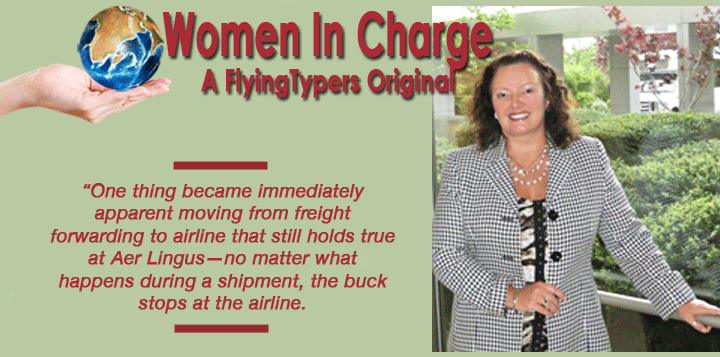 |
“I began as a customs
runner for a freight forwarder and eventually went out on the
road for that company.
“At the time, air cargo
was almost entirely a male dominated business, and frankly as
a woman it was a bit easier to at least get a toe in the door,
so I went into sales and marketing.
“In 1990 I joined Lufthansa
Cargo in sales, where I worked for seven years, ending up as
sales manager for Ireland, which was a really great experience.
“One thing became immediately
apparent moving from freight forwarding to airline that still
holds true at Aer Lingus—no matter what happens during
a shipment, the buck stops at the airline.
“After Lufthansa I was head
hunted to Emery Worldwide, so it was back to freight forwarding
and total logistics with a truly great company and some wonderful
people.”
If it sounds like Anne Marie has
made a success and a lot of friends in air cargo, believe it.
But while considering the fabric,
color, and atmosphere of air cargo, Anne Marie gets right down
to business.
In 2012, Aer Lingus Cargo is willing
and able to do business, offering a surprising list of European
destinations and opportunity for some real savings every step
of the way.
“From Boston, New York,
Chicago and Orlando, Aer Lingus Cargo via Ireland serves Birmingham,
Edinburgh, London, Gatwick, Heathrow, and Manchester, plus over
30 destinations across Europe.
“It is the ability to move
via less crowded Ireland to all these destinations that offers
shippers a definite advantage and opportunity to grow business,
with extraordinary customer service and attention to detail,”
she said.
“Just last month we moved
our cargo offices for Aer Lingus back to the airport at Dublin,
in the same building where I started my career.
“The purpose of course is
to put air cargo management literally right on top of the action,
but for me the move is also a return of sorts.
“I do really love being
back there.”
Of course, no article about Aer
Lingus can overlook the ongoing donnybrook with carrier Ryanair
and LCC airlines’ self-absorbed gadfly, CEO Michael O’Leary.
On June 19, 2012, Ryanair announced
its intention to launch yet another bid to take over Aer Lingus
at €1.30 per share, for a total of €694 million.
On June 20, 2012, Aer Lingus issued
a press release stating that, having reviewed Ryanair's proposed
offer, the company board must reject it and advise the company's
shareholders not to take any action in relation to it.
Aer Lingus pointed out that any
offer from Ryanair was unlikely to be capable of completion
due to, firstly, the EU Commission's 2007 decision to block
the airline's bid for Aer Lingus at the time, and, secondly,
the UK Competition Commission's ongoing investigation of Ryanair's
minority stake in Aer Lingus.
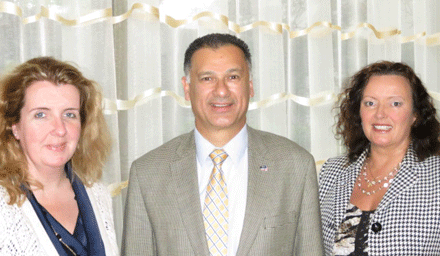 Also, Aer Lingus’ board
believes that Ryanair's offer undervalues Aer Lingus, considering
the airline's profitability and balance sheet, including cash
reserves in excess of €1 billion (as of March 31, 2012).
Also, Aer Lingus’ board
believes that Ryanair's offer undervalues Aer Lingus, considering
the airline's profitability and balance sheet, including cash
reserves in excess of €1 billion (as of March 31, 2012).
But no one doubts O’Leary
will continue his quest to add Aer Lingus to his Ryanair stable.
For Anne Marie, even though business
everywhere is challenging, 2012 is a time to think of new partnerships.
Willie Mercado, Cargo Sales &
Reservations Manager North America, and Debbie Gaine, U.S. Cargo
Sales Manager East Coast, joined our small gathering at JFK
with Anne Marie.
It should be mentioned that Willie
gets great credit and attention for his years of selfless service
to the entire air cargo business on the U.S. east coast as President
of the JPK-based Air Cargo Association.
In a world where most air cargo
clubs or associations hang on by the effort and determination
of a few stalwart organizers and workers, Willie has been the
stand up guy for New York/New Jersey ACA for longer than anyone
can remember.
We all owe Willie a lot of deep
thanks for a job above and beyond, and also for the biggest
one-day air cargo event on the planet, JFK Air Cargo Day, held
the last Thursday of March each year.
Willie Mercado emphasized that
the Aer Lingus Cargo network, which lifts consignments via A320s
across Europe, is second to none, connecting from North America
via speedy Gateway Ireland.
Debbie marked her 25th Anniversary
at the carrier and was also celebrating her daughter’s
confirmation the previous Sunday.
“Boxes do speak,”
Debbie said of air cargo.
“In fact, at times they
can even scream, with the smallest ones making the most noise.
“It is our job to make sure
that we always pay attention to detail and make sure we never
let the customer forget how important he or she is to us,”
Anne Marie smiled.
Geoffrey/Sabiha
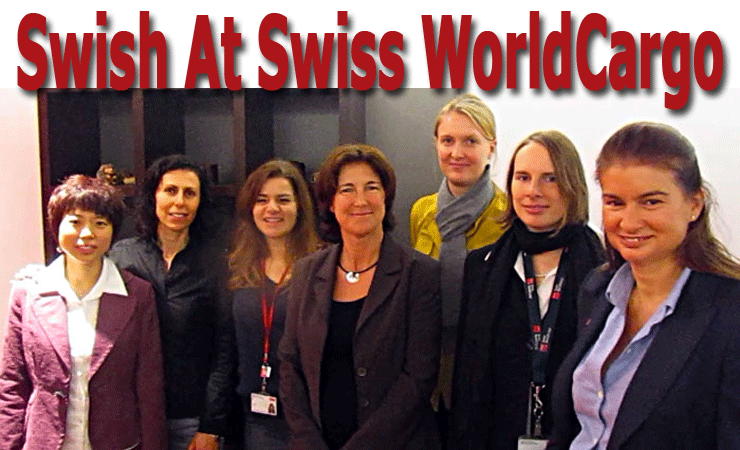 |
|||
 Bettina
Jansen
Bettina
Jansen |
 Leslie Taylor-McLaughlin |
 Karen Avestruz |
 Donna Letterio |
 Lillian Chan |
 Flossie Arend |
Tell
the industry about a female at any level that you know, or
have known about in air cargo. Write a short essay about what
that woman means to air cargo. Pictures are welcome. |
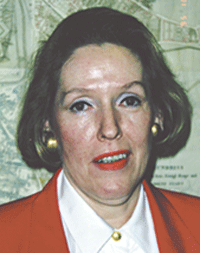 Traude Frigge (In Memoriam) |
 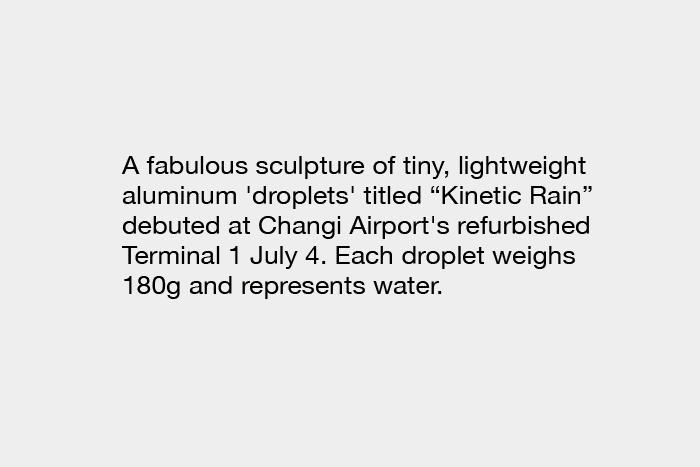 |
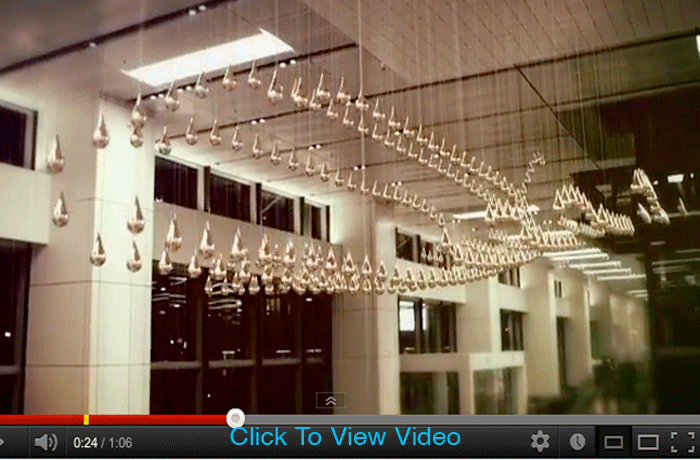 |
According to a source close
to FlyingTypers, the puzzling question of discerning
what exactly GACAG does has just been answered. |
That Counter-Piracy Conference,
convened by the UAE’s Ministry of Foreign Affairs and
global port operator DP World in Dubai during the last week
of June, and covered here exclusively, unveiled yet more evidence
of how deeply piracy on the high seas is undermining world trade. |
Remember sea-air
in commercial aviation? The practice involved moving freight
first by ocean carrier to a major port, then flying it off
to its destination in Europe or the Middle East. This was
all the rage in the 70s and continued all through the 90s,
whether with unitized loads originating in Asia or in North
America to a European port.
|
|
Get
On Board Air Cargo News FlyingTypers |
If
You Missed Any Of The Previous 3 Issues Of FlyingTypers |
|||||
|
|||||
FT062512 |
FT070212 |
||||
|---|---|---|---|---|---|

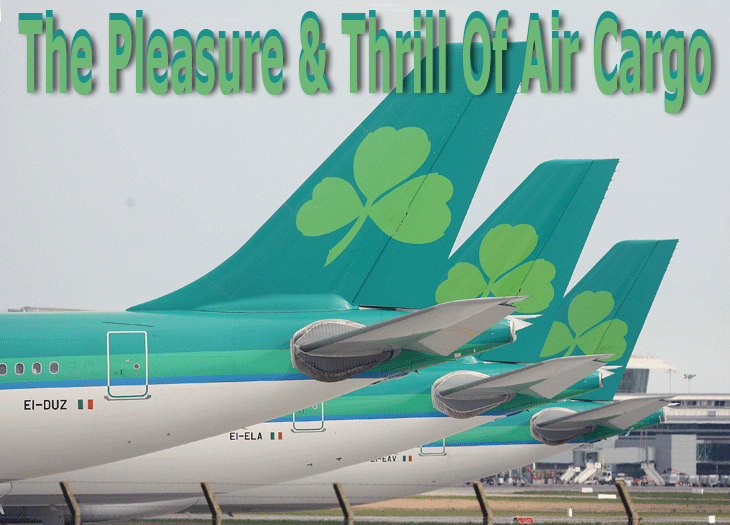
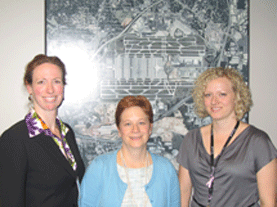
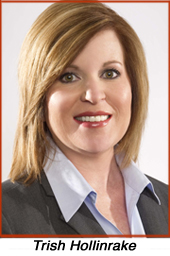



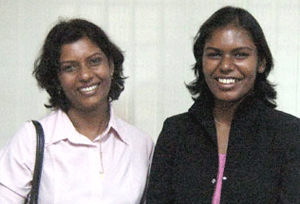




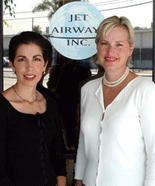



















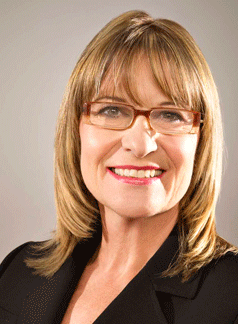











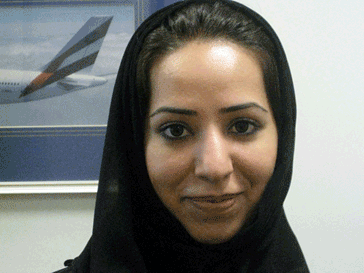

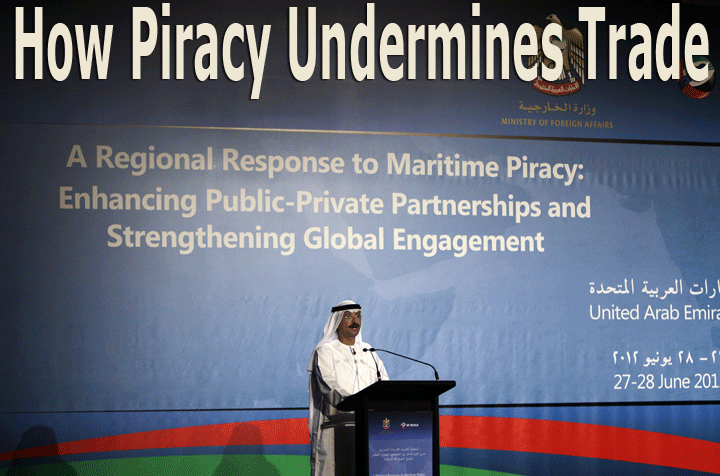
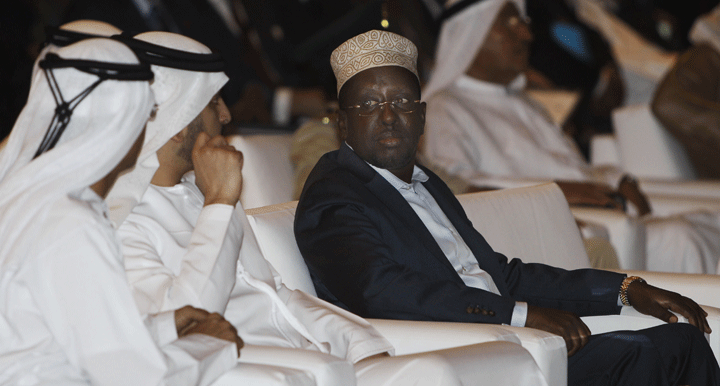
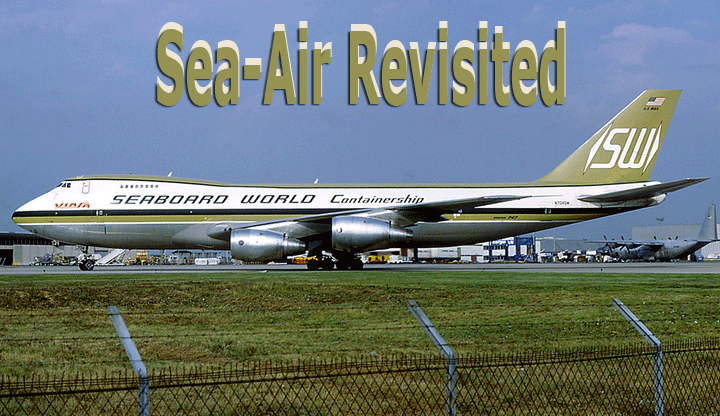
 RE:
RE:


